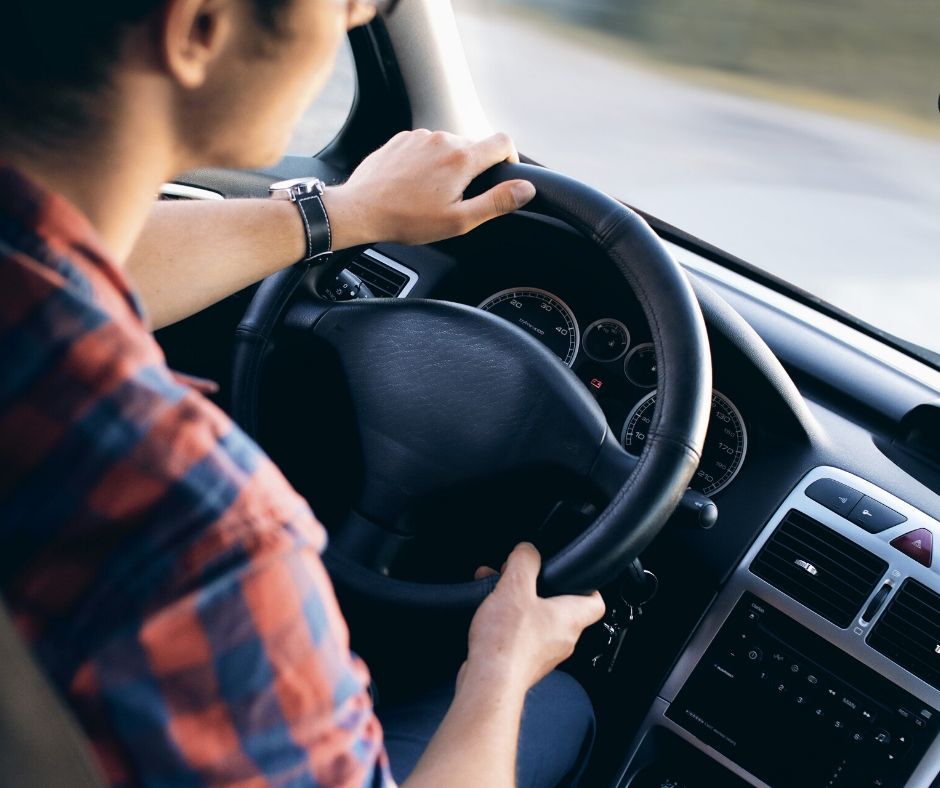Hot Tea, Falls on Ice and Election of Benefits: What Qualifies for Auto Accident Benefits?
- by Ryan Alkenbrack

This past May, I wrote a blog about hot coffee spills and other unusual cases where injured people were found to be eligible for accident benefits from their motor vehicle insurer. The Licence Appeal Tribunal (LAT) has released two recent decisions that shed further light on these types of situations.
What qualifies for auto accident benefits isn't always clear.
As mentioned in my previous blog that you can find here, there have been a number of unusual situations over the years where a person is injured in or around a motor vehicle and has been found eligible for benefits under their motor vehicle policy, despite the fact that they were not driving at the time of their injury. Here are some examples to review.
M.P vs. Allstate Insurance Company of Canada – Hot Tea Spill
This case is very similar to those that I wrote about in the last blog; an individual obtained a hot cup of tea from a drive-through window, drove away, stopped at a red light and then noticed that the lid was not securely fastened to the cup. The applicant then attempted to move the cup, spilling hot tea on herself. She applied to her insurer for accident benefits who denied the application on the basis that the spill did not occur in the regular use and operation of the motor vehicle.
The LAT agreed that the accident resulted from the ordinary use of the automobile, but agreed with the insurer that there were “intervening acts” that were not part of the “ordinary course of things”. In cases where there is an intervening act that is not a normal or ordinary risk when using or operating a motor vehicle, the insurer will not be responsible for paying accident benefits.
The LAT ultimately decided that the drive-through employee’s failure to secure the lid, and the applicant’s actions (moving the cup and attempting to secure it after noticing it was loose) were intervening acts which made her ineligible for accident benefits.
K.P. vs. Aviva General Insurance – Slipping on Ice while walking to get into a Lyft
This case was released on April 17, 2020, and involved an individual who was injured in January when she slipped and fell on ice on the driveway of her parents’ home. At the time of her fall, she had been walking down the driveway to get into a rideshare vehicle (Lyft). She applied for accident benefits with her motor vehicle insurer who denied benefits on the basis that she was not involved in an “accident” within the meaning of the legislation.
The LAT had to decide on two issues in this case. The first was whether the use or operation of a motor vehicle caused the injuries. The second issue was whether slipping on the ice was an “intervening act”. If the fall was an “intervening act” that would mean that the operation of the vehicle was not a direct cause of the injuries and therefore the claimant would not be eligible for accident benefits.
The LAT found the applicant’s only reason for walking down the ice-covered driveway was to get into the car to be transported to her doctor and therefore there was no doubt that the “use and operation” of the motor vehicle must have begun when the Lyft driver accepted the applicant’s ride request.
For the second issue, the LAT stated that there were two separate independent direct causes of the injury, the icy snow-covered condition of the driveway and the fact that the Lyft could not pull up to the front entrance. In their decision, the adjudicator states that because one direct cause of the injury was the use and operation of the car (walking to get into the car), the applicant should be entitled to accident benefits.
G.N.K vs. Aviva Insurance Canada – Important Case on Election of Benefits
If someone is injured during the use or operation of a motor vehicle, as part of the application process for accident benefits, the individual may be eligible for income replacement benefits (IRBs) or non-earner benefits (NEBs). In certain cases, an applicant may be eligible for both, in which cause they have to elect to receive one or the other. This election takes place by way of a standard form.
In this case, the applicant elected to receive income replacement benefits for lost income. After a review of the file, the insurer determined that the amount payable was $0 because of the applicant’s receipt of other disability benefits. The applicant argued that, because he was found to be ineligible for IRBs, in hindsight, the original election was invalid and he should be able to re-elect to receive non-earner benefits.
The LAT disagreed and found that where someone may be entitled to either IRBs or NEBs, and makes an election, regardless of whether this election is made in error or by mistake, that election is final regardless of any change in circumstances afterwards. The LAT concluded that an applicant may only re-elect in cases where they are found to be catastrophically impaired after the original election.
Cases involving possible auto accident benefits claims can be difficult to decide: Bonn Law can help.
These decisions show that every case is unique and that there should be a careful analysis of every accident benefits case to ensure your rights are being protected. If you are injured in a motor-vehicle related incident, Bonn Law is here to help.
